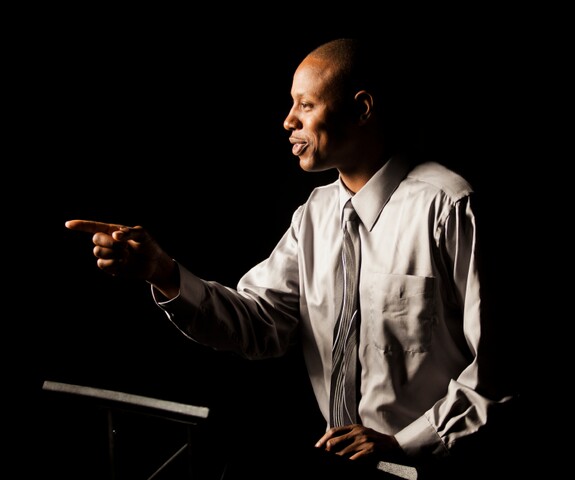Since becoming a member of The Church of Jesus Christ of Latter-day Saints, I’ve encountered a few cultural differences that took a little adjustment. For example, in the Baptist church, the same preacher delivers the sermon almost every Sunday, so it was strange to me that in this Church we didn’t have the same preacher every week. To make things even stranger, it was folks from the congregation that delivered the sermons!
Most people would rather go to the dentist than deliver public speeches. As members of the Church, however, it’s our responsibility to take our turn to speak in sacrament meeting. This truth makes it imperative for us to take the time to learn how to speak and communicate our thoughts and feelings to a congregation from the pulpit.
The way I see it, there’s always somebody in the Church audience that’s in need. If this weren’t true, nobody would be there in the first place. Every time I’ve stood at the pulpit to speak—whether as a Baptist preacher or Latter-day Saint teacher—I feel the congregation’s need. The members need me to follow the direction of the Spirit and to speak inspiring words from our Father in Heaven.
Recognize your sacred responsibility to prepare.
Preparing for the sacred responsibility of speaking in sacrament meeting is vital when we accept an invitation from the bishopric to address the ward. Think about it. When you’re in the audience, you don’t want to sit through a talk where it’s obvious the speaker did little to prepare. This is why praying, studying, fasting, and following the Spirit’s direction is so important when giving a talk in sacrament meeting.
Remember that practice makes effective.
Another key ingredient when preparing for a speaking assignment is practice, practice, practice! Did I mention you should also practice?
Do you think speakers who deliver a talk with the tongue of angels didn’t prepare and practice? I make it a habit to practice giving a talk, even when I don’t have an assignment to speak! I practice in the mirror while shaving. I practice in my car while driving. If I have some extra time to kill in the morning, I give a talk.
As I deliver these impromptu talks, I focus on how to communicate my thoughts and on what words are the best to use. When I do have a speaking assignment, the thoughts and words formed in these practice talks serve as the tools the Spirit uses to help me speak God’s words to my brothers and sisters.
Simply put, effective speakers practice.
I’ve never met a person who wasn’t afraid to speak in public at first. I’ve never met one who hit a home run with their first talk. We all start out scared, stuttering, and nervous. You know what I’m saying. “Uh, good morning brothers and sisters, uh . . .” Or “Ummm . . . my name is Wain Myers . . .”
Don't forget to prepare with the right perspective.
The difference between a good sacrament meeting speaker and a not-so-good sacrament meeting speaker is practice and perspective. If our perspective is that we have a sacred responsibility to prepare and speak the Lord’s word to the congregation—and we practice—we will become better speakers with each and every assignment.
The pulpit is a sacred place. As a Baptist preacher, I understood that the people sitting in the pews were in spiritual need. I understood that my role as a preacher was to be a conduit through which the Lord uplifted and edified His children. I admit that many of my motives at the time were less than pure, but that was due largely to a lack of light and knowledge. I always practiced and prepared, no matter what.
Never before has the world been in such need of the gospel of Jesus Christ. Preaching His gospel is a sacred responsibility that we, as members of the Lord’s true Church, must be willing and ready to do at all times and in all places. Whether we’re at the pulpit delivering a talk in sacrament meeting or taking part in a member-present missionary lesson, we have the sacred responsibility to be prepared to speak up when we’re asked to do so, and even when we’re not. Basically, we need to be ready to teach the gospel whenever the Spirit moves us to open our mouths.


